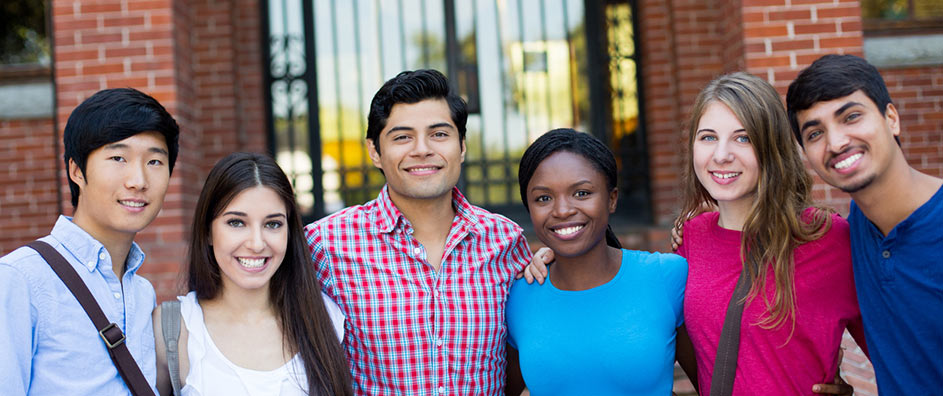The Bahá’í Faith, a progressive and inclusive religious framework, illuminates numerous principles imparted by its foundational teachings. Among these, the profound precept of banishing all forms of prejudice stands at the forefront. The concept of prejudice, stemming from irrational bias and unwarranted discrimination based on immutable characteristics, has perennially plagued human societies. It manifests in various forms, such as racial intolerance, gender inequality, and religious bigotry, stifling unity and social cohesion. Thus, the call to abolish prejudice emerges not merely as an ethical imperative but also as a foundational pillar to foster a peaceful and harmonious global community.
The Bahá’í teachings posit that humanity is a single, interconnected entity, akin to a diverse garden where each flower contributes to the overall beauty of creation. This metaphor underscores the essence of diversity and the intrinsic value of every individual. Cultivating a profound recognition of the oneness of humankind serves as the antidote to the malignancy of prejudice. When individuals embrace their shared humanity, they begin to appreciate the richness that diversity imparts upon the world. This principle encourages the practitioners to extend their vision beyond personal affinities and biases, advocating for a panoramic worldview that celebrates differences rather than denigrates them.
Addressing prejudices necessitates an examination of the deeper reasons behind these biases. Often, prejudice is borne out of ignorance and fear—the fear of the unknown or the unfamiliar. Individuals may gravitate towards that which is familiar, creating arbitrary boundaries that separate “us” from “them.” The Bahá’í Faith emphasizes the importance of education and critical thinking as tools to combat such prejudices. By fostering an environment where knowledge is shared and diverse perspectives are welcomed, communities can dismantle the barriers erected by ignorance.
Furthermore, the Bahá’í teachings advocate for the cultivation of virtues such as empathy, compassion, and justice. A commitment to understanding others’ experiences can mitigate discriminatory tendencies. Engaging in active listening and seeking to understand differing viewpoints can illuminate paths to reconciliation and unity. Such reactive measures, when intensified within educational frameworks, can nurture more inclusive and tolerant societal norms.
A central tenet of Bahá’í spirituality includes the idea that true knowledge brings forth light, dispelling the shadows of ignorance. The act of striving towards knowledge is not a mere accumulation of facts but encompasses comprehending the essence of one’s fellow beings. This awakening to the humanity of others naturally leads to the slow erosion of prejudiced mindsets. In the grand tapestry of human experience, learning becomes a shared journey; this interconnectedness is vital for transcending the limitations of constructed identities and social categories.
Additionally, the Bahá’í teachings illustrate the imperative to acknowledge and rectify the social injustices borne out of prejudice. This entails not only individual growth but also a collective responsibility to advocate for equitable systems and structures. Bahá’í believers are encouraged to participate actively in social action that uplifts marginalized communities and addresses ingrained disparities. The call for justice echoes throughout their scriptures, reinforcing the idea that a just society is contingent upon the dismantling of prejudicial constructs.
The spiritual principle of unity in diversity, as articulated in Bahá’í doctrine, posits that divergent cultures, beliefs, and practices contribute to a more holistic understanding of truth. This acknowledgment allows for a broader acceptance of varying identities and perspectives. The celebration of cultural diversity can serve as a potent counter-narrative to the forces of prejudice, fostering mutual respect among differing groups. Harmonizing these varied expressions of identity ultimately cultivates a robust societal fabric where equality prevails.
In the workplace, this principle manifests through inclusive practices that eschew discriminatory hiring and promotional policies. A diverse workforce, rich in varied perspectives and experiences, catalyzes innovation and creativity. Organizations adhering to Bahá’í principles often embody principles of equity, ensuring that all voices are heard, valued, and empowered. Such efforts not only bolster organizational integrity but also reflect a larger societal commitment to breaking the chains of prejudice.
Moreover, the Bahá’í community engages in constructive dialogues that address issues of oppression and inequality. By fostering environments where individuals can express their experiences and grievances, they challenge the status quo and advocate for lasting change. This endeavor is not only vital for individual healing but also essential in the collective struggle against systemic biases. The eradication of prejudice thus becomes a shared mission that resonates throughout society.
In navigating the complexities of human relationships, the Bahá’í teachings provide a profound framework for understanding and overcoming prejudices. By cultivating an ethos of unity, empathy, and education, individuals contribute to the creation of an inclusive environment in which all forms of discrimination are condemned. The call to action is clear: to foster a world where love reigns supreme over hatred, and where the innate dignity of every human being is revered. This vision not only reflects the aspirations of the Bahá’í Faith but resonates across humanity’s collective journey towards enlightenment and peace.
In conclusion, the Bahá’í commitment to banishing all forms of prejudice transcends mere doctrine; it is a transformative process that requires dedication, action, and communal effort. By nurturing an understanding of our interconnectedness and advocating for justice and equity, we lay down the foundational stones for a world free from the chains of prejudice. The aspirations of the Bahá’í teachings beckon us to embark on a collective journey towards unity, harmony, and the realization of our shared humanity.
